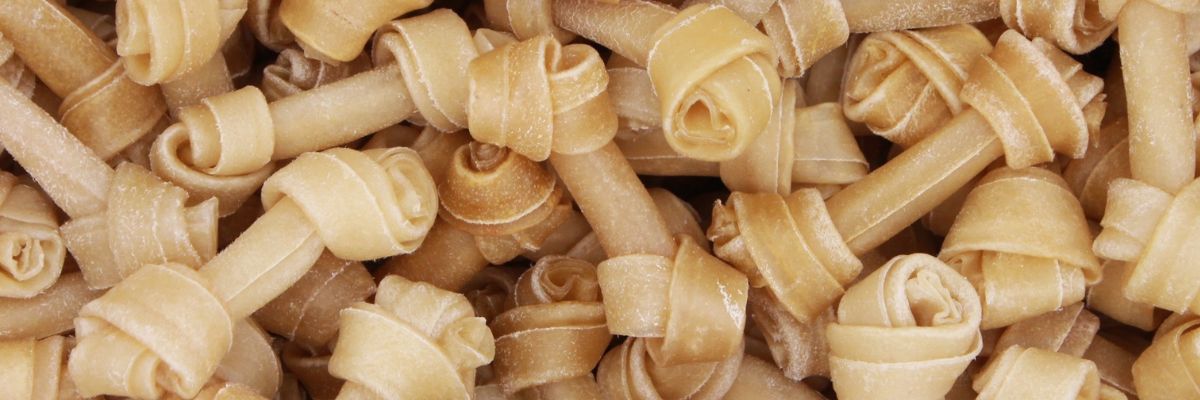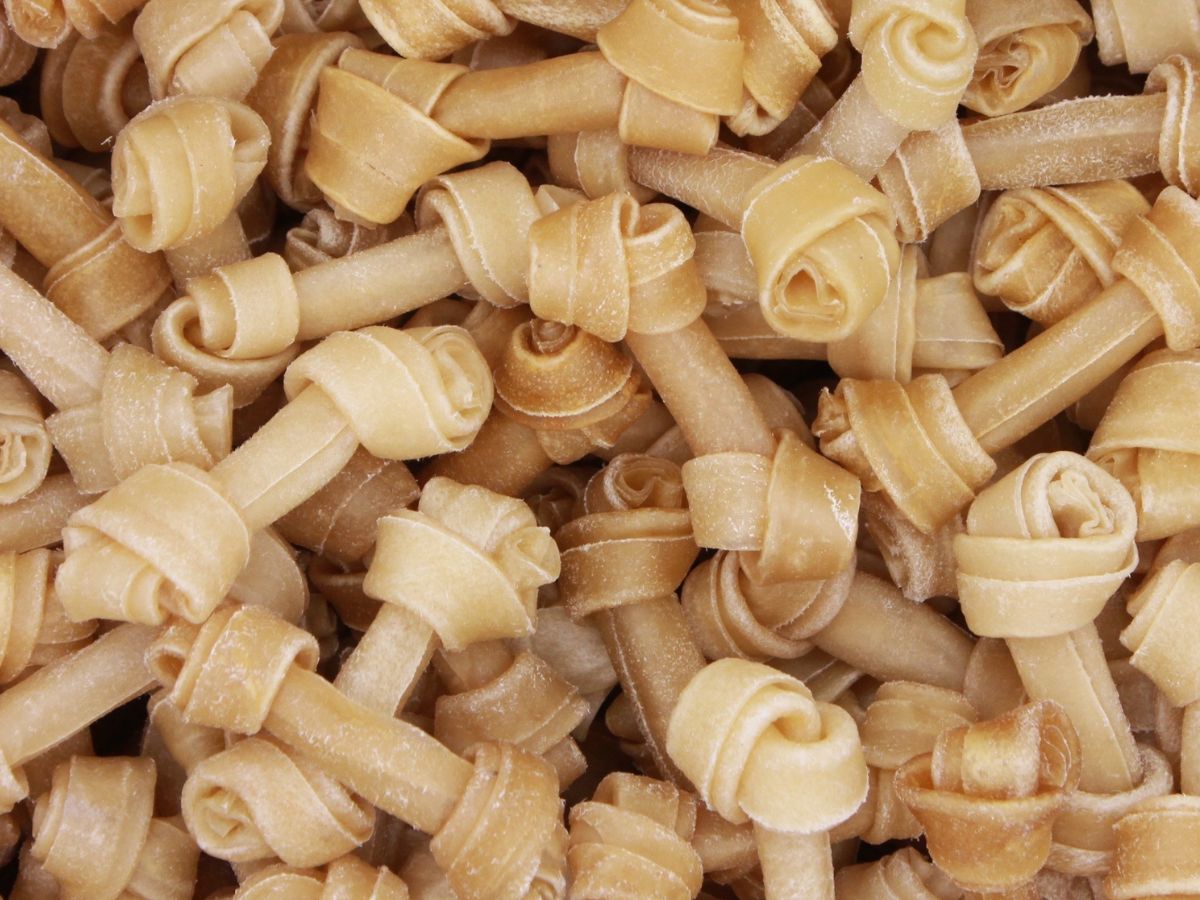
Rawhide chews, made from the inner layer of cow or horse hides, are popular for their durability but carry several risks for dogs.
Key takeaways
- Rawhide is produced by cleaning and processing animal hides, often treated with chemicals and preservatives that may harm dogs.
- The hardness of some rawhide products may cause tooth fractures or dental damage in dogs.
- Chewing rawhide pieces poses a significant risk of digestive blockages and infections for dogs if swallowed.
- Alternatives like Kong toys and other natural chews offer safer options that satisfy dogs’ chewing instincts without the health risks.
What is rawhide?
Rawhide is a popular dog chew made from the inner layer of animal hides, typically cow or horse hides. The process begins with cleaning the hides thoroughly, then cutting and processing them into various shapes and sizes to create rawhide chews.
These chews are known for their durability and long-lasting nature, making them a favourite among many dog owners. However, while dogs love to chew, it’s crucial to understand what rawhide is made of and the potential risks it may pose to your furry friend.
Is rawhide bad for dogs?
Rawhide can lead to intestinal blockages or cause gastric irritation if ingested. Along with gut irritation, emergency abdominal surgery may be necessary if a dog swallows a large piece of rawhide.
Rawhide may pose a choking hazard. Large pieces of rawhide can get stuck in your dog’s oesophagus, leading to choking hazards.
Rawhide may break your dog’s teeth. Some dog owners will give their dogs rawhide to help clean their teeth. However, pressed or glued rawhides, because they are very dense and hard, can pose a risk of tooth breakage.
Rawhide may pose a risk of chemical contamination. Due to the harmful chemicals or preservatives used in processing, rawhide can carry risks of Salmonella or E. coli, affecting both those who consume it and those who handle it at home.

What is rawhide made from?
Rawhide chews come from the inner layer of cow or horse hides. During manufacturing, the hides are cleaned and cut or ground. While the ingredients in rawhide can differ, many contain chemicals and preservatives that may be harmful to dogs.
Chews are sometimes treated with high-salt brines, which can be detrimental to a dog’s health.
Are rawhide chews good for my dog's dental health?
Rawhide products are often marketed as beneficial for your dog’s dental health. The concept is that chewing on rawhide can help clean teeth by removing plaque, reducing tartar buildup, and stimulating saliva production. However, the effectiveness of rawhide chews in maintaining dental health is still a matter of debate.
While they may assist in keeping teeth cleaner, they should not be considered a substitute for regular dental care. In some cases, rawhide chews can be too hard or dense, which may lead to tooth fractures or other dental damage.
Risks of chewed rawhide treats
Chewed up rawhide can pose significant risks to your dog if swallowed. Small pieces may become lodged in the digestive tract, leading to intestinal blockages or obstructions, which can be life-threatening.
Additionally, if the rawhide is not properly cleaned and processed, it may harbour harmful bacteria that can cause infections.

What is a good alternative to rawhide for dogs?
Chewing can be beneficial for dogs, as it helps prevent boredom and reduces anxiety. If you’re searching for safer chew options for your dog, there are many alternatives to rawhide. Kong toys, sweet potato chews, and other natural dog chews provide safer alternatives than rawhide.
Rawhide chews are often thought to promote dental health, but they may do more harm than good. Dental chews and other edible treats can effectively help reduce tartar buildup and improve oral health.
Using alternatives to rawhide can satisfy your dog’s natural chewing instincts while minimising the risk of intestinal blockages and other health issues.
Choosing safe rawhide chews
When choosing rawhide chews for your dog, it’s important to select products from reputable manufacturers that use high-quality ingredients and follow strict safety protocols. Chews made from a single layer of hide are less likely to cause digestive problems. Avoid products that contain, high salt content, added chemicals, artificial colours, or flavours, as these can be harmful to your dog. Choose chews that are suitable for your dog’s size and age.
Always supervise your dog while they are chewing to ensure their safety. Keep an eye on your dog’s behaviour and health and consult your vet if you notice any unusual behaviour, signs of illness or discomfort. Dogs can sometimes not show signs of discomfort but do odd things like drink excessively and sleep lots.
If you have any concerns about the impact of rawhide chews on your dog’s diet, always speak to your vet first, or if out-of-hours, contact your nearest Vets Now pet emergency clinic.

